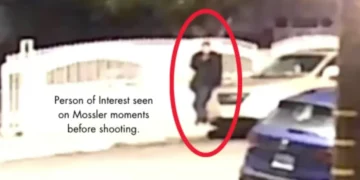LOS ANGELES, CA – Investigators are examining whether an attempt by Southern California Edison to shut off power ahead of the Eaton Fire may have inadvertently sparked the deadly blaze, raising new questions about utility safety measures in high-risk wildfire areas.
According to public records obtained by local media, Edison had been warned three years ago about the potential risks associated with power shutdowns. Experts cautioned that cutting electricity to certain lines could overload remaining transmission lines, potentially leading to overheating and sparking. Despite these warnings, key mitigation efforts were delayed, and scheduled work to address the risks was never completed, the records indicate.
When the Eaton Fire ignited on January 7, Edison’s electrical lines over Eaton Canyon reportedly experienced a sudden spike in current at nearly the same moment the fire began. Officials are now investigating whether this electrical surge played a role in igniting the blaze, which killed 17 people and destroyed hundreds of acres.
Southern California Edison is facing lawsuits alleging that its equipment is responsible for starting the fire. However, the company has stated that the cause remains under investigation and has not been definitively determined.
“We don’t know what caused the fire,” said Edison spokeswoman Kathleen Dunleavy. “We are exploring all possibilities, including the potential involvement of our equipment.”
The role of power lines in California wildfires has been a recurring concern in recent years, with several major fires linked to utility infrastructure failures. In response, power companies have implemented Public Safety Power Shutoffs, or PSPS events, as a preventive measure during extreme weather conditions. However, the latest allegations suggest that such efforts could have unintended consequences if not properly managed.
State and federal officials continue to investigate the cause of the Eaton Fire, and regulatory agencies are expected to review whether further safety measures are needed to prevent similar incidents in the future.


























